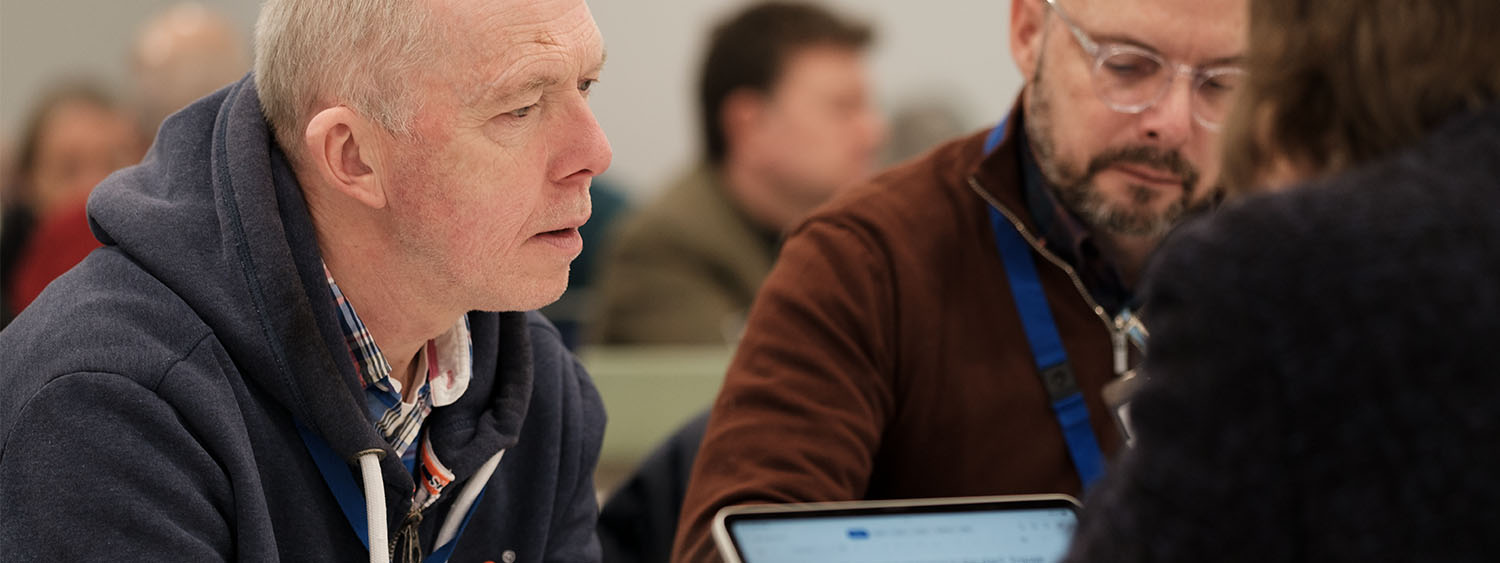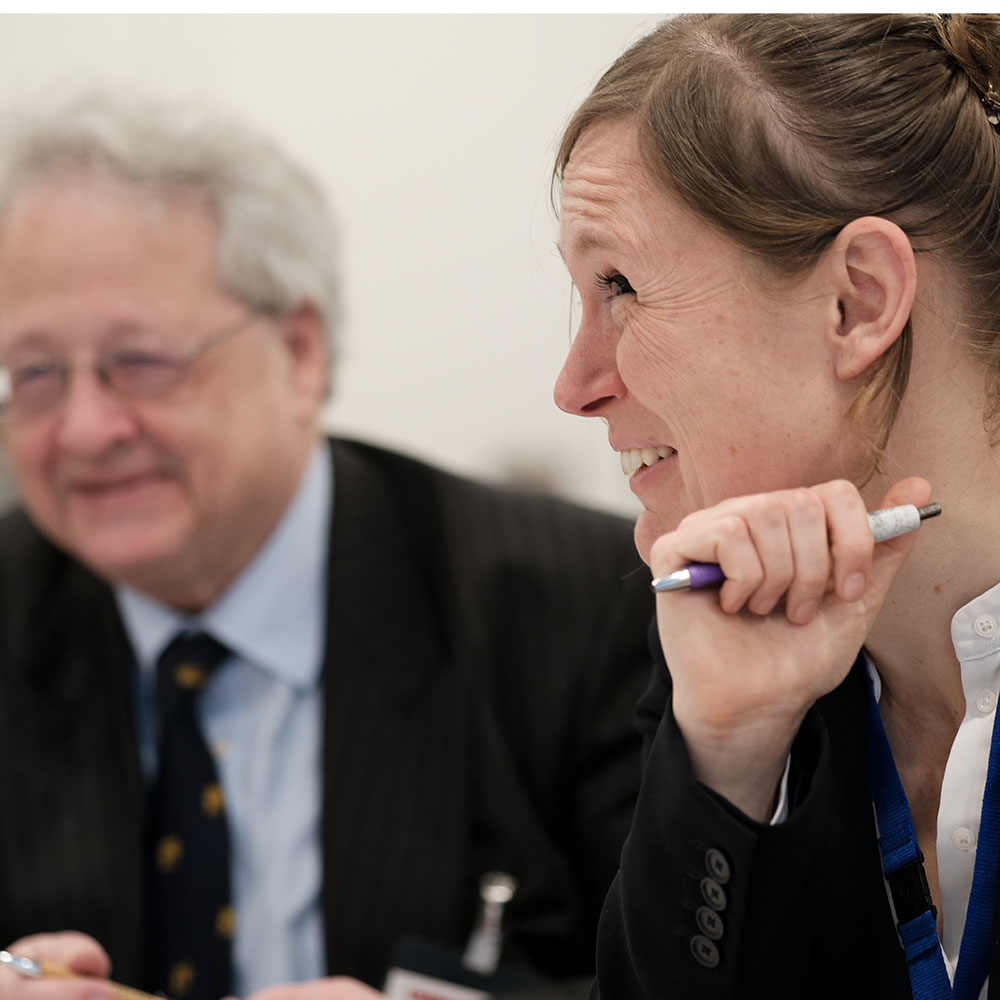 The March meeting of Oxford Diocesan Synod took time to consider care for creation and the many different strands of work now underway, and our New Congregations programme.
The March meeting of Oxford Diocesan Synod took time to consider care for creation and the many different strands of work now underway, and our New Congregations programme.
In his presidential address, Bishop Steven spoke of the need for the Church not just to conserve but to restore the natural world intentionally in the years ahead.
“Earth is the only planet, the only corner of this vast universe, where we are certain there is abundant life”, said Bishop Steven. “Yet the once rich tapestry of life on earth is now being degraded year by year because of the expansion and greed of a single species: ourselves.
“Our life is inextricably linked to and dependent on the biodiversity of the earth. Yet scientists have named these decades as the Age of Extinction. If we sleepwalk through the next ten years, the tragedy will be indescribable and irreversible for the whole future of life on earth.”
Bishop Steven’s address, which can be viewed in full below, included details of some of the amazing work taking place in churches across the diocese and a new ‘Wilder Churches’ partnership with the Berks, Bucks and Oxfordshire Wildlife Trust.
Net Zero Carbon Action Plan
Synod also heard from Bishop Olivia, who leads the environment focus area, and Hannah Mann, Environment Programme Manager for the diocese.
‘The fifth Mark of Mission compels us to sustain life on earth’, said Bishop Olivia, ‘therefore a commitment to the natural world is not an add on to Christian discipleship but integral to, and part of the identity of, disciples of Jesus Christ’.
Hannah’s presentation, which can be heard in full below, set out details of the Net Zero Carbon Action Plan for the diocese. We have over 170 registered Eco Churches in the diocese, and with 20% of churches responsible for 50% of total church emissions, the environment team will be working closely with high emitters in the coming months.
"There is hope in this plan of a cleaner, healthier, more resilient diocese, flourishing in every sense, if we take this opportunity to step out in faith, to be open and bold, and, at every turn, to be more Christ-like, for the sake of God’s world" – Hannah Mann
Net Zero Carbon Action Plan: short term priorities
- To ensure diocesan buildings use less energy overall by becoming more energy efficient.
- To support diocesan churches and schools move as soon as possible to a credible green energy tariff, and to encourage clergy to do so where they felt able.
- To work with priority schools and churches on decarbonisation plans and explore and identify opportunities for capacity and funding to upscale the work.
Following a discussion of Hannah’s presentation, Synod approved the motion to: support the milestones outlined within the national route map to Net Zero Carbon and seek to meet those as far as possible within the context of the Oxford Diocese; endorse the diocesan Net Zero Carbon Action Plan and ask Bishops’ Council to oversee its implementation; call on parishes… to continue their positive work and form their own plans consistent with the diocesan intention.
Two deanery motions
Synodical governance in the Church of England means that deaneries can put forward proposals that influence the approach of the Church at diocesan and national level. Synod debated motions brought by two deaneries in the diocese.
Planning regulations
 Following an amendment by the DAC chair, Synod unanimously voted to approve a Reading Deanery motion to ‘propose that all reasonable steps are taken to influence HM Government to review planning regulations, in particular the weight they give to the environmental public benefit, in applications for the installation of solar panels on the roofs of churches, where appropriate, and the installation of heat pumps, and other renewable technologies, including where the churches are listed buildings or in conservation areas; and to facilitate the installation of renewable technologies in other buildings as part of a programme of measures to increase energy efficiency’. The Reading deanery motion will also be referred to General Synod.
Following an amendment by the DAC chair, Synod unanimously voted to approve a Reading Deanery motion to ‘propose that all reasonable steps are taken to influence HM Government to review planning regulations, in particular the weight they give to the environmental public benefit, in applications for the installation of solar panels on the roofs of churches, where appropriate, and the installation of heat pumps, and other renewable technologies, including where the churches are listed buildings or in conservation areas; and to facilitate the installation of renewable technologies in other buildings as part of a programme of measures to increase energy efficiency’. The Reading deanery motion will also be referred to General Synod.
Seasonal flowers and floral foam
The second motion, also passed by Synod, came from Wantage Deanery, and calls on all parishes to promote the use of local, seasonal and biodegradable flowers and foliage, and to strongly discourage the use of floral foam in their churches and graveyards.
Fr Benji Tyler, who moved the motion, told Synod that by swapping imported flowers for Easter floral decorations with local flowers, the diocese could prevent around twenty-four tonnes of carbon dioxide from the collective carbon footprint, and that ‘Oasis’ floral foam contains microplastic and formaldehyde, which had been found in sea plankton. Benji encouraged churches to use the resources available from Sustainable Church Flowers and is happy for any church to get in touch with him for further advice.
Other topics
Synod, which took place on Saturday, 11 March, was attended by all our Bishops and about 80 clergy and lay members. The meeting included discussion of February's General Synod meeting – summarised for Synod by the Rev Joy Mawdsley and the Rev Canon Toby Wright - and eleven questions, received in advance, concerning Living in Love and Faith.
New congregations
During the afternoon Synod heard from Andrew Anderson Gear and the New Congregations team about examples from six new worshipping congregations across the diocese.
-
Outdoor Church
Churn Benefice are getting great feedback on their outdoor services which encourage people to get closer to nature alongside time for prayer and praise. -
Intentional café
St Frideswide’s in Milton Keynes set up a weekly membership-based community larder during lockdown. It developed into an ‘intentional café’ offering healthy and nutritious food together with prayer, silence and a ‘Sharing Jesus’ slot. ‘Soup for the Soul’ now has forty core members, 90% of whom had no previous church connection. -
NARNiA (North Aylesbury Resourcing Network in Aylesbury)
One of two diocesan-funded funded resource hubs, pioneer church leaders are sharing their expertise in church planting and mission to areas of new housing. Where before each minister was resource-constrained, a Greenhouse Learning Community is now flourishing. -
Cake, coffee and chat
Cross and Stable Church in Downs Barn is helping to address mental health challenges each Wednesday morning. Fifty people of all ages, all faiths and none, gather at the church each week for ‘Chatterbox’; a chance to talk, share and support one another, over free hot drinks and cake. -
Church plants taking root
Emmanuel Church began in 2002, planted on the Bure Park housing development with church home groups from St Aldates & St Ebbes in Oxford. They moved into a new church building and became their own parish ten years later and have gone on to plant Hope Church on the Elmsbrook Estate. With a focus on creation care Hope Church now meets weekly for worship, led by a Pioneer Curate. -
Intergenerational church
St Edburg’s church received diocesan new communities funding a decade ago. Volunteers have served families through a weekly Stay and Play toddler group and a small but growing monthly Messy Church. St Edburg’s have launched a new Intergenerational Morning Service on the second Sunday of each month, aiming to reach out to the 60+ families who came for baptism every year, along with other families from across the town.
Further information about our New Congregations programme is available at oxford.anglican.org/growing-new-congregations
Financial year end
Sir Hector Sants advised Synod that the diocese is expected to be close to break even on the 2022 core budget and thanked parishes for ensuring that over 95% of parish share had been contributed. There had been a very substantial catch-up on work to vicarages. The diocese has been helped by a positive property rental market, and there had been a benefit from the reduced contribution rates of the clergy pension scheme.
With an expected 95% recovery rate of parish share in 2023, the diocese is carrying a budgeted deficit for the core budget, which includes a budgeted 4% increase in stipends and salaries but no increase in overall parish share contribution ask.
The 2024 budget is now at an early stage of planning, but it is clear that inflation, and any increase to stipend and salary levels in 2024, will result in a rise in parish share contribution.
Read 'On the Money' for an explanation of parish share, diocesan and parish finances
Closing address and next meeting
The Revd Deiniol Kearley-Heywood gave a reflection at the end of the meeting, reflecting that Diocesan Synod is a place where theology and practice meet: good practice drives good theology. The Synod next meets in June, where the work to support Children, Young People and Families will be one of the many topics under discussion by members.
Information about Diocesan Synod is available at oxford.anglican.org/diocesan-synod
